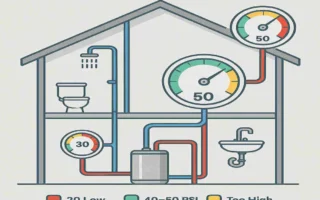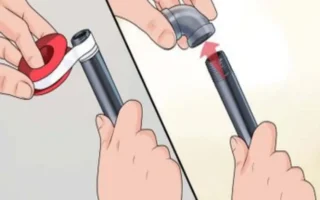Heavy rain can indeed cause home plumbing issues by overwhelming drainage systems, causing blockages, leaks, and backups. Key risks include clogged drains from debris, sewage backups when municipal systems are overwhelmed, sump pump failures leading to basement flooding, and soil saturation that can damage or misalign pipes. Preventative measures like regular gutter cleaning, ensuring proper drainage away from the home’s foundation, inspecting and repairing leaks or cracks in pipes, and maintaining sump pumps are essential to mitigate these risks and protect plumbing systems from heavy rain damage. Professional plumbing inspections and timely repairs can also help prevent costly damages due to rain-induced plumbing problems.
Understanding Heavy Rain and Its Effects on Home Plumbing

What Qualifies as Heavy Rain?
Heavy rain isn’t just a casual shower that waters your garden. Meteorologists typically define heavy rainfall as precipitation exceeding 0.30 inches per hour or accumulating more than 2-3 inches within 24 hours. During these intense weather events, your home’s plumbing faces challenges it wasn’t necessarily designed to handle on a daily basis.
Think about it this way: your plumbing system works like a carefully balanced network of highways. Under normal conditions, water flows smoothly through designated routes. But when heavy rain strikes, it’s like rush hour traffic suddenly multiplying tenfold. The system becomes overwhelmed, leading to backups, slowdowns, and, at times, complete failures.
How Excess Water Overwhelms Your Plumbing
Your home’s plumbing connects to larger municipal systems through a complex network of pipes. During heavy rainfall, these systems must handle not only regular household wastewater but also massive amounts of stormwater. The sheer volume can exceed the system’s capacity, causing water to flow backward into your home.
The ground around your property also plays a crucial role. When soil becomes saturated, it can no longer absorb water. This creates hydrostatic pressure against your foundation and underground pipes. Imagine squeezing a water balloon – that’s similar to what happens to your pipes when surrounded by waterlogged soil.
Surface Water vs. Groundwater Impact
Understanding the difference between surface water and groundwater helps you grasp why heavy rain affects plumbing so dramatically. Surface water, or stormwater, runs off roofs, driveways, and streets. It typically flows into storm drains explicitly designed for this purpose. However, in many older neighborhoods, storm drains connect to the same system as household sewage, creating the potential for overflows.
Groundwater presents a different challenge altogether. As rain soaks into the earth, the water table rises. This underground water level can reach your home’s foundation, basement walls, and buried pipes. When groundwater levels get too high, they infiltrate through tiny cracks, joints, and even porous concrete, finding their way into your plumbing system where they don’t belong.
Common Home Plumbing Issues Caused by Heavy Rain

Blocked or Overwhelmed Drainage Systems
Your home’s drainage system works tirelessly to channel water away from your property. But during heavy rain, gutters and downspouts can quickly become clogged with leaves, twigs, and debris. When this happens, water overflows and pools around your foundation instead of flowing safely away.
Indoor drains face similar challenges. Floor drains in basements, garages, and laundry rooms can back up when the main sewer line becomes overwhelmed. You might notice water bubbling up through these drains, carrying unpleasant odors and potentially hazardous waste.
Sewer Backups and Overflows
Sewer backups are among the most serious plumbing issues caused by heavy rain. When municipal sewer systems reach capacity, they can’t accept more water from individual homes. The result? Sewage flows backward through your pipes, emerging from toilets, tubs, and basement drains.
This isn’t just inconvenient – it’s a health hazard. Raw sewage contains bacteria, viruses, and other pathogens that can cause serious illness. The damage extends beyond health concerns, often requiring extensive cleanup, replacement of flooring and drywall, and professional sanitization services.
Basement Flooding and Water Intrusion
Basements sit below ground level, making them particularly vulnerable during heavy rainfall. Water naturally flows downward, seeking the lowest point. Even well-maintained basements can flood when rain overwhelms the standard drainage system.
Water finds its way through foundation cracks, window wells, and floor joints. Once inside, it can damage stored items, furniture, and essential home systems, such as furnaces and water heaters. The moisture also creates ideal conditions for mold growth, which can spread throughout your home if not addressed quickly.
Root Infiltration and Pipe Damage
Trees and shrubs near your property seek water wherever they can find it. During dry periods, their roots grow toward your underground pipes, sensing moisture. Heavy rain accelerates this process, as saturated soil makes it easier for roots to penetrate pipe joints and existing cracks.
Once inside your house pipes, roots continue growing, creating blockages and eventually breaking pipes apart. You might not notice this damage immediately, but over time, you’ll experience frequent clogs, slow drainage, and eventually, complete pipe failure.
Pipe Bursts from Soil Movement
Saturated soil doesn’t just sit there – it moves, shifts, and settles differently than dry earth. This movement puts tremendous stress on buried pipes, especially older clay or cast iron lines. The weight of water-logged soil can crush pipes, while shifting ground can pull pipe joints apart.
Temperature fluctuations during storms compound these problems. Rapid cooling can cause pipes to contract, while the surrounding soil expands due to moisture. This opposing force creates stress fractures that eventually lead to complete pipe failure.
Why Does Heavy Rain Cause These Plumbing Problems?

Understanding Drainage System Capacity
Every drainage system has its limits. Engineers design residential plumbing to handle typical household water usage plus a reasonable safety margin. Municipal systems follow similar principles, sized to manage average rainfall plus occasional heavy storms.
However, climate patterns are changing. What used to be “100-year storms” now occur more frequently. Your neighborhood’s infrastructure, possibly decades old, wasn’t designed for today’s extreme weather events. When rainfall exceeds these design limits, the system can’t cope, leading to the various problems we’ve discussed.
The Soil-Plumbing Infrastructure Relationship
Soil acts like a giant sponge around your home’s plumbing. Different soil types absorb and retain water differently. Clay soil expands dramatically when wet, putting pressure on pipes and foundations. Sandy soil drains quickly but can wash away, leaving pipes unsupported.
Your plumbing infrastructure is constantly interacting with the surrounding soil. Pipes rely on stable soil for support. When heavy rain changes soil conditions, this delicate balance gets disrupted. Pipes can sag, separate, or crack under the changing pressures.
Impact of Aging Pipes
Older homes face greater risks during heavy rainfall. Pipes installed decades ago have endured years of minor stresses that accumulate over time. Small cracks develop, joints loosen, and materials degrade. These vulnerabilities might not cause problems during normal conditions, but become critical failure points during heavy rain.
Modern plumbing materials like PVC and PEX resist water damage better than older clay, cast iron, or galvanized steel pipes. If your home still has original plumbing from the 1960s or earlier, heavy rain poses a significantly higher risk of causing significant problems.
Municipal System Overload
Your home’s plumbing doesn’t exist in isolation. It connects to larger municipal systems that serve entire neighborhoods. When these community systems become overwhelmed, every connected home suffers consequences.
Identifying Signs of Plumbing Problems After Heavy Rain

Early Warning Signs
Catching plumbing problems early can save you thousands of dollars in repair costs. After heavy rain, pay attention to how your drains behave. Slow-draining sinks, tubs, or toilets often indicate developing blockages in your main sewer line.
Detecting Odor Problems
Unpleasant smells provide essential clues about plumbing issues. Sewer gas odors inside your home indicate that water barriers (called trap seals) have been compromised. This might happen when pressure changes in the sewer system suck water out of traps.
Visible Water Signs
Walk around your house property after heavy rain subsides. Look for water pooling in unexpected places, especially near your foundation. Standing water that persists for more than a day suggests drainage problems that need attention.
Inside, check basement walls for dampness, water stains, or efflorescence (white, chalky deposits). These signs indicate water infiltration through foundation walls. Inspect areas under sinks, around toilets, and near floor drains for any signs of water backup or leakage.




